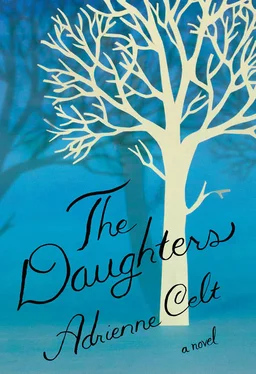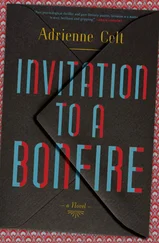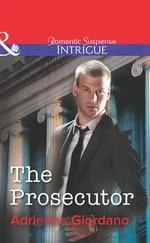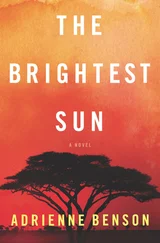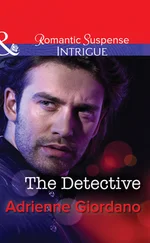When the lights came up, I blinked in the sudden brilliance of the room. I’d focused so long and acutely on the stage that having a whole broad world to look at made me somewhat dizzy. I took a deep breath to clear my head and then sneezed. Turning, I saw Sara smoking a cigarette in her seat.
“I don’t think you can do that in here.” I rubbed my nose and looked at her accusingly, hoping nonetheless that her smoking would give me time to get my bearings.
“Oh, please,” she said. “You still don’t understand about being clandestine? It means you can do anything you want. Just like being a princess. So come off it.” She stubbed the cigarette out on the polished arm of her chair, leaving a black circle of singe and the poison odor of burning varnish.
“Come on.” My mother tugged on my hand, and I hurried to thrust my arms into the sleeves of my coat. Having outfitted herself for the chill winter air over an hour before, she didn’t seem to notice that I’d barely had time to stand up. I took a last look around the theater, which still seemed to throb with the opera’s final notes.
“Can we go see the orchestra?” I asked as I fumbled with my coat buttons. “Or say good-bye to the singers? I really want to see the singers.”
Sara rubbed her forehead, pinching the skin between her thumb and middle finger. Her wooziness had taken on new dimension during the show’s finale, and I could see her debating the wisdom of sitting back down and closing her eyes for a moment while I ran around and had my fun. Today was the first day I’d been able to identify her tang of maple syrup and wood smoke as whiskey: the bottle she’d waved towards me in the second intermission had solved the long mystery of my mother’s most peculiar perfume.
Lulu — her real name, I learned later, was Rosalind DeLaney — sashayed onto the balcony and, spotting me, threw her arms open wide. They were bare now that the sleeves had been torn off them, but five or six new cloth hearts had been pinned haphazardly all over her remaining strips of dress. I ran over and tucked myself into the crook of her neck and shoulder, smelling the tacky sweet makeup caked on her face, cut with the salt of her sweat.
“My understudy!” She picked me up and twirled me around in the air and I laughed, making the sound purposefully melodic so she would hug me tighter. Then she set me down. “You have some pipe organs in those lungs, I hear?”
I nodded and beamed.
“Well, you take care of them.” She put a hand over her mouth to stifle a giggle. “And someday you’ll be here too, singing secret shows for no money.”
“Do you think so?”
I had no reason to trust her encouragement and, having never heard me sing, she had no reason to give it. But still the moment glowed between us: she, shimmering with the light of her success, and me, burning brightly from the heart out.
“Lulu.”
We both looked up at the sharp sound, but it was clear that my mother was talking only to me. She had another cigarette between her fingers — this time, thankfully, unlit.
“Let’s go,” she said. “I have to get out of here.”
I gave Rosalind one more squeeze around the neck and then ran after my mother, who’d disappeared into the hallway. If Rosalind was confused about Sara’s behavior — ignoring her, absconding before the party I now know must have followed — she didn’t show it. There were other guests to greet and preen to.
We pushed out the back door into the alley and Sara immediately began flicking her lighter at the cigarette. She was talking to herself quietly— should’ve known, pretentious assholes —and couldn’t get a flame, so she threw the lighter against the side of the building opposite.
“Whoa, sunshine.” The gatekeeper pushed himself up from the wall against which he’d been leaning, puffing smoke into the sky. “Let me get that for you.”
I frowned at him, though I also had the urge to reach out and touch him as he casually ignited my mother’s cigarette and gave an ironic bow. The front of his tuxedo bore a bright red flower that had been used to simulate Dr. Schön’s gunshot wound.
“You shouldn’t smoke,” I scolded, thinking of his voice.
My mother rolled her eyes and tugged my arm again, waving vaguely at the man.
“What do you care?” She moved quickly towards the subway platform. The sun had disappeared behind a new head of clouds while we were hidden in the theater, and the cold felt less pure now, more invasive and wet. “He’s nobody.”
“He’s the gatekeeper,” I said, no longer sure.
Back at Washington and Wells, we waited for the train on the creaking cold boards of the platform. A sheet of newspaper blew around, never quite kicking off onto the tracks or down onto the street but tumbling up and back, shushing against the advertisements and occasionally tickling someone’s legs. Waiting for the train, I knew we wouldn’t be calling it a chariot or a royal carriage. But I couldn’t help feeling a shiver of hope, of electricity, as we retraced our footsteps.
The train slowed down, stopped, and lurched slightly forward again before the doors opened. My heart hiccupped into my throat and I hopped on board, accidentally pushing into a teenage boy, who told me to watch it. There was an old man sitting in the handicapped seats by the door clutching a cane with both hands. The madrigal, I thought; he would recognize us. The madrigal would wake my mother back up into the woman she had been that morning, putting a smudge of lipstick on my mouth before we left the apartment and entrusting me with the tickets, tucking them into the secret inner pocket of my coat.
I sat down in the pair of seats closest to the man, and Sara set herself beside me with a sigh.
“Shouldn’t we sing him a song?” I nudged her and indicated towards the man with the cane.
“What?” My mother followed my gaze and then looked up at the ceiling for a long moment. She said something that I couldn’t quite hear, using mostly the back of her throat.
“What?” I parroted. She closed her eyes.
“I said, can you give it a goddamn rest.”
My mother slept until we had to change trains, and I watched the blind man, studying him. He couldn’t possibly be the royal madrigal, I decided. His hat was different. He was no longer humming along with the train but just letting it throw him gently back and forth as it turned around the Loop. Anyway, I assured myself, it was too much of a coincidence.
When we reached our stop, I shook Sara gently by the shoulder and she blinked at me, then stood up and walked off without saying a word. I hesitated in front of the blind man.
“Good-bye,” I said.
He tilted his chin in my direction, and a mask of something approaching recognition came over his face. He sensed our greatness through the sound of our voices , my mother had said. The madrigal knew the orphans to be more than they appeared.
A metallic ding sounded and I ran through the doors of the train before they closed and locked me in. But when I looked through the window, I thought I saw the madrigal wink at me — wink, that is, at the ground on which I’d been standing before I ran after my mother into the world.
History is like any other story — it depends on us, it feeds on us, on our desire to get it right. But what if there is no way to know exactly how something was, what it meant? What if an event is too complicated to make sense of, to ever put your finger on?
Most people vaguely remember Fryderyk Chopin to be French. His father hailed from Lorraine and his compositions were Romantic, so it seems aesthetically appropriate to tie him to the City of Love and Light. Indeed he died in Paris; his body was interred there in Père-Lachaise Cemetery after he drowned in the fluid of his own lungs. So he is called Frédéric François Chopin, and listeners feel haute and beau monde when they put their children to sleep with his nocturnes.
Читать дальше
